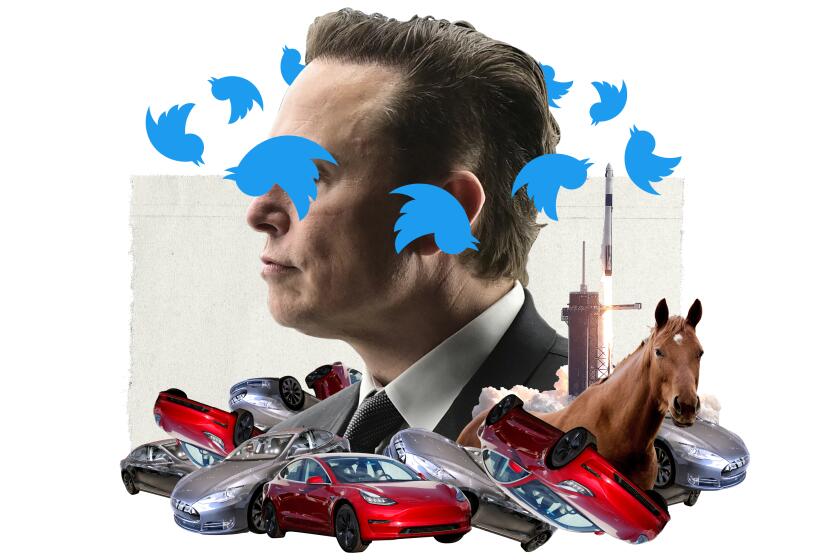Former SpaceX employee alleges age discrimination in complaint

A former SpaceX employee is alleging in an essay published Wednesday that he experienced ageism while working at the Elon Musk-run company and has filed a complaint claiming discrimination with Washington state authorities.
John Johnson said he first came to the company in 2018 to work as a principal engineer in optics and early on got “consistently solid” performance reviews. “I was quite hardcore,” he wrote in the essay published on the whistleblower site Lioness.
After he had back surgery in early 2020, however, he said he started to see his responsibilities disappear until he had nothing left to work on and ultimately resigned, leaving SpaceX in July of this year.
“From that point forward, there were a lot more aspects of my job that were taken over by other people,” Johnson, who is 62, told Bloomberg News in an interview.
SpaceX didn’t respond to a request for comment on the allegations.
Elon Musk’s track record as a boss is an endless scroll of impulse firings, retribution, tone-deafness on race — and the impregnation of a subordinate.
In August, Johnson filed a complaint reviewed by Bloomberg with the Washington State Human Rights Commission, making the age discrimination and retaliation allegations he highlights in the essay. The state commission also didn’t respond to a request for comment on the status of the case.
Johnson said he watched younger and less experienced workers take on his work, he wrote in the essay. On one occasion, Johnson asked an engineer why he was shadowing him to learn about his role. The engineer said that his manager told him it was necessary because Johnson might “retire or die.”
Johnson said he reported the comment and his diminishing responsibilities to human resources multiple times. He also reached out to SpaceX’s president and chief operating officer, Gwynne Shotwell. He said he was told there would be an investigation but “nothing was done to remedy my situation or restore my job duties,” he wrote in the essay.
Earlier this year, Johnson wrote in the essay that he was invited to a meeting with HR and told that SpaceX no longer had work for him in his area of expertise and that his manager would help him find other internal opportunities. That never happened, he wrote, and in June, he put in his resignation.
SpaceX’s vice president of human resources didn’t immediately respond to a request for comment.
With a late-night memo to Twitter employees, Elon Musk made his clearest move yet to force a company culture reset.
Lioness, the publication that published Johnson‘s piece, hosts essays by people from companies across industries. Last year, it ran an essay by Ashley Kosak, another former SpaceX employee, who detailed allegations of sexual harassment while working at the company. Kosak also alleged HR didn’t address her complaints.
SpaceX did not respond to Kosak’s essay. A few days before its publication, Shotwell sent a companywide email saying that HR would conduct an internal and third-party audit of SpaceX’s sexual harassment reporting process.
In November, eight former SpaceX employees filed complaints with the U.S. National Labor Relations Board, alleging they’d been wrongfully fired after penning a public letter criticizing Musk’s online behavior and tweets as “a frequent source of distraction and embarrassment for us.”
Musk recently took over Twitter, where he has fired more than half of the social network’s staff, including employees who publicly disagreed with him and those who made perceived negative comments about him online.
This month, Musk sent an email to employees asking them to sign a pledge saying they would accept a “hardcore” culture or else they’d have to leave with severance.
More to Read
Inside the business of entertainment
The Wide Shot brings you news, analysis and insights on everything from streaming wars to production — and what it all means for the future.
You may occasionally receive promotional content from the Los Angeles Times.












